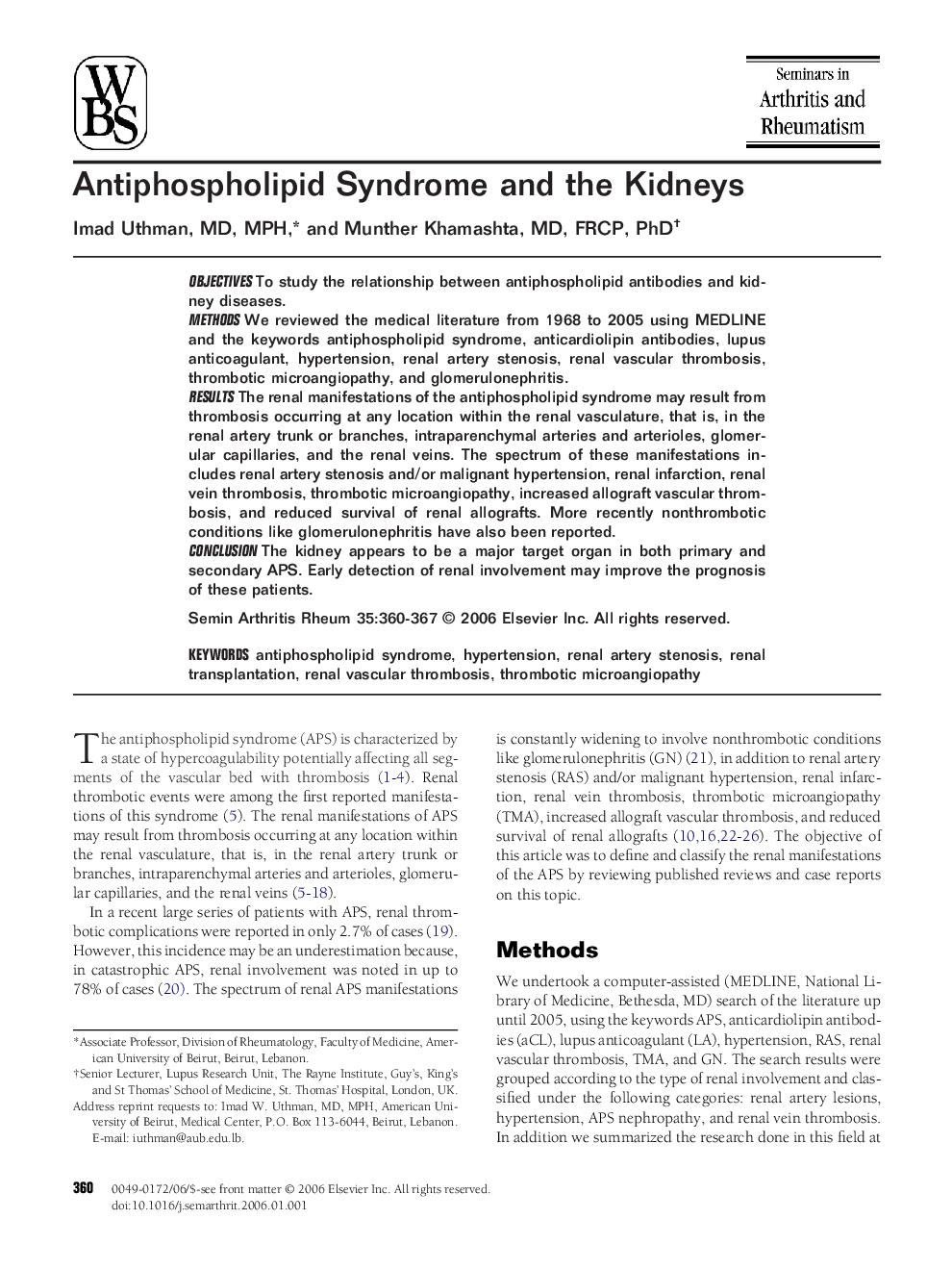| Article ID | Journal | Published Year | Pages | File Type |
|---|---|---|---|---|
| 2772063 | Seminars in Arthritis and Rheumatism | 2006 | 8 Pages |
ObjectivesTo study the relationship between antiphospholipid antibodies and kidney diseases.MethodsWe reviewed the medical literature from 1968 to 2005 using MEDLINE and the keywords antiphospholipid syndrome, anticardiolipin antibodies, lupus anticoagulant, hypertension, renal artery stenosis, renal vascular thrombosis, thrombotic microangiopathy, and glomerulonephritis.ResultsThe renal manifestations of the antiphospholipid syndrome may result from thrombosis occurring at any location within the renal vasculature, that is, in the renal artery trunk or branches, intraparenchymal arteries and arterioles, glomerular capillaries, and the renal veins. The spectrum of these manifestations includes renal artery stenosis and/or malignant hypertension, renal infarction, renal vein thrombosis, thrombotic microangiopathy, increased allograft vascular thrombosis, and reduced survival of renal allografts. More recently nonthrombotic conditions like glomerulonephritis have also been reported.ConclusionThe kidney appears to be a major target organ in both primary and secondary APS. Early detection of renal involvement may improve the prognosis of these patients.
